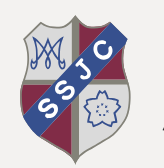Sakura Seibo Junior College is a private junior college located in Chofu, Tokyo, Japan, founded in 1963. The school is operated by the Sakura Seibo Gakuen School Corporation, and is committed to cultivating students with professional knowledge and skills, providing high-quality education and a rich campus life. The following is a detailed introduction to Sakura Seibo Junior College, including its history, subject settings, educational characteristics, campus facilities and other information.
Basic Information
Name: Sakura Seibo Junior College (Japanese: Sakura Seibo Junior College / さくらのせいぼたんきだいがく)
English Name: Sakura Seibo Junior College
Address: 1-23-1, Senkawa, Chofu, Tokyo
Establishment: 1963
Type: Private Junior College
History
1963: Sakura Seibo Junior College was established.
1980s to 1990s: The school gradually strengthened international education and practical education to improve teaching quality.
After 2000: Further improve the subject settings and educational facilities to improve students' employment competitiveness.
After 2010: Continue to promote educational reform, expand international exchange programs, and enhance the school's reputation and influence.
Subject Settings
Sakura No Sacred Mother Junior College has multiple subjects covering childcare, early childhood education, living arts, music and culture. The specific subject settings are as follows:
Childcare Department
Childcare Major: Cultivate professionals with childcare knowledge and skills.
Child Education Department
Child Education Major: Cultivate professionals with early childhood education knowledge and skills.
Living Arts Department
Living Arts Major: Cultivate professionals with living arts design and creation capabilities.
Music Department
Music Major: Cultivate professionals with music performance and education capabilities.
Culture Department
Culture Major: Cultivate professionals with cultural research and communication capabilities.
Educational Features
Practical education: Emphasizes the combination of theory and practice, provides rich internships and practical activities, and helps students accumulate practical work experience.
Small class teaching: Adopts a small class teaching model to ensure that every student can get full attention and guidance.
Career support: There is a dedicated career guidance center to provide services such as career planning, employment consultation and internship recommendations.
International education: Actively promote international education, establish cooperative relations with universities in many countries, and provide overseas exchange programs.
Personality cultivation: The school focuses on the all-round development of students, and cultivates students' leadership and teamwork skills through various extracurricular activities and club activities.
Campus facilities
Library: It has rich book resources and a modern reading environment.
Laboratory: Equipped with advanced experimental equipment to support scientific research and practical teaching.
Training room: There are multiple training rooms to provide a real practical environment.
Sports facilities: Including gymnasiums, sports fields, etc., to promote students' physical and mental health.
Student dormitories: Provide comfortable accommodation environment to facilitate students' life and study.
Research center
Conservation research center: Research various issues in the field of conservation and provide support for conservation.
Early Childhood Education Research Center: Research various issues in the field of early childhood education and provide support for early childhood education.
Art of Living Research Center: Research various issues in the field of art of living and provide support for art of living design.
Music Research Center: Research various issues in the field of music and provide support for music performance and education.
Cultural Research Center: Research various issues in the field of culture and provide support for cultural communication.
Student Activities
Club Activities: There are various student clubs covering academic, cultural, sports and other fields.
Volunteer Activities: Encourage students to participate in community services and social welfare activities to cultivate a sense of social responsibility.
Admission Requirements
Entrance Examination: Usually includes written examinations and interviews. Please refer to the school's official website for specific requirements and procedures.
International Students: Accept international student applications, subject to language proficiency and other relevant requirements.
Contact Information
Tel: +81-42-486-1111
Fax: +81-42-486-1112
Email: admission@sakuraseibo.ac.jp
School Motto
School Spirit: Freedom and Creation
Educational Philosophy: Cultivate students with professional knowledge and skills, as well as rich personalities.
Employment situation
Employment rate: The employment rate of graduates of Sakura University is high, and many graduates have found satisfactory jobs in the fields of childcare, early childhood education, living arts, music and culture.
Notes
Reputation: Sakura University enjoys a good reputation in Tokyo and even in Japan, especially in the fields of childcare, early childhood education, living arts, music and culture.
Further study: Graduates can choose to continue their studies in undergraduate or graduate schools, or they can directly enter the workplace.
The above is a basic introduction to Sakura University. If you have more specific questions or need detailed information, it is recommended to visit the school's official website or contact the relevant department of the school directly.
-
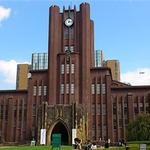
The University of Tokyo
-
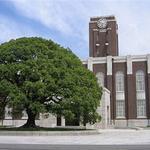
Kyoto University
-
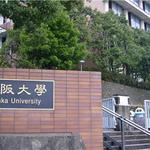
Osaka University
-
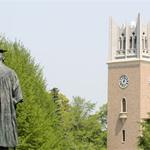
Waseda University
-
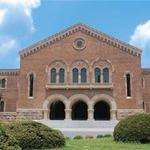
Hitotsubashi University
-
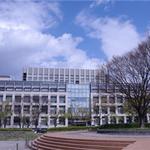
Nagoya University
-
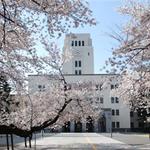
Tokyo Institute of Technology
-
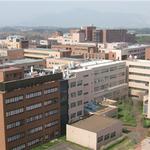
University of Tsukuba
-
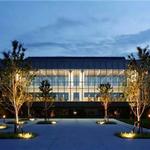
Keio University
-
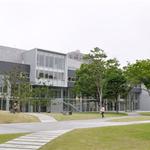
Tohoku University
-

Mesoamerican University
-

Istmo University
-

Mariano Galvez University of Guatemala
-

Regional University of Guatemala
-

Galileo University
-

Francisco Marroquín University
-

Rafael Landívar University
-

University of the Valley of Guatemala
-

University of San Carlos of Guatemala
-

Technological Institute of Tlaxcala Plateau
-

Golfo University
-

Technological University of South Sonora
-

Technological University of Huejotzingo
-

Tizimín Institute of Technology
-

Chilpancingo Institute of Technology

